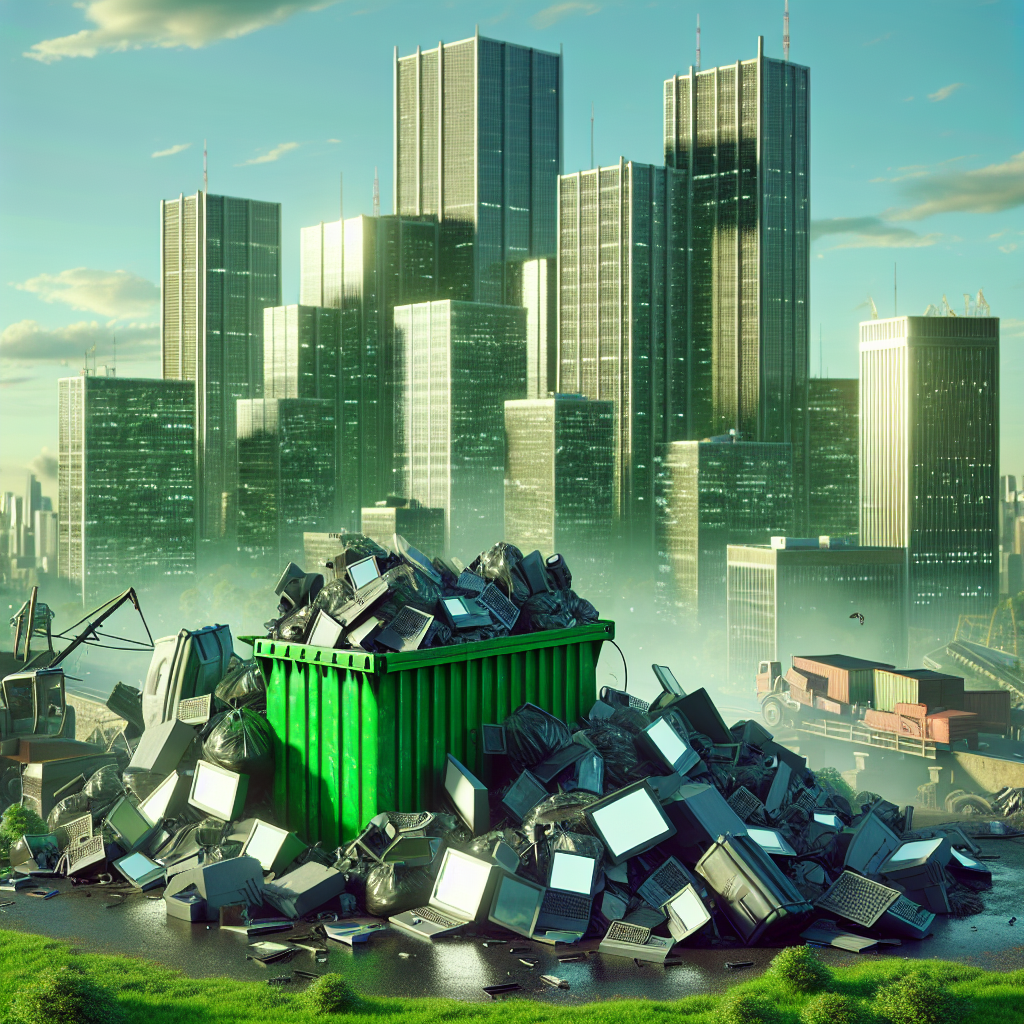Blog Ecobraz Eigre

Only 3% of e-waste is recycled in Brazil: the invisible cost of corporate inaction
Brazil faces a major challenge with e-waste management, recycling only 3% of the waste generated. This article explores the environmental and social impacts of low recycling, as well as the invisible cost of inaction by the responsible sectors, highlighting the importance of sustainable practices and the urgency of effective policies for the correct management of this waste.
The alarming scenario of e-waste in Brazil
Technological advances and the rapid obsolescence of electronic devices result in an increasing generation of e-waste. Data shows that in Brazil only a small fraction of this waste - around 3% - is properly recycled. The rest is often disposed of incorrectly, causing serious environmental and public health problems.
Environmental impacts of poor e-waste management
Electronic equipment contains toxic materials such as lead, mercury, cadmium and other heavy metals, which, when disposed of incorrectly, contaminate soil and water, affecting ecosystems and putting biodiversity at risk. Inadequate decomposition of these materials can release harmful substances that persist in the environment for years.
Social and economic consequences
Inaction to recycle e-waste also has a high social cost. Vulnerable communities can be exposed to health risks by dealing informally with hazardous waste. In addition, the waste of valuable materials such as gold, silver and copper means a significant economic loss, which could be reversed through efficient reuse programs.
The invisible cost of inaction by those responsible for the production and disposal chain
While improper disposal is evident, the cost of inaction by those involved in the cycle of electronic devices often goes unnoticed. The lack of clear policies, insufficient investment in recycling infrastructure and the absence of educational campaigns all contribute to perpetuating the problem. This shows a lack of responsibility and commitment to sustainability.
Alternatives and solutions to reverse the situation
Implementing reverse logistics programs, expanding collection and recycling centers, as well as encouraging public awareness, are fundamental steps. Technological innovation combined with effective public policies can increase recycling capacity and reduce environmental impact. Investing in environmental education and in partnerships with various sectors helps to create a more sustainable cycle.
Individual responsibility is also fundamental
In addition to structural actions, each consumer can contribute by choosing to dispose of their electronic devices correctly, taking part in recycling campaigns and opting for repairs or reuse whenever possible. Small actions combined have the potential to transform the current situation.
Conclusion
The low recycling rate of electronic waste in Brazil reveals a complex problem involving environmental, social and economic challenges. The lack of action by the sectors involved and the absence of concrete policies represent an invisible but enormous cost that affects the country's sustainability. Adopting responsible practices and raising awareness is urgently needed to reverse this situation and guarantee a more sustainable future.

Deixe um comentário
O seu endereço de e-mail não será publicado. Campos obrigatórios são marcados com *